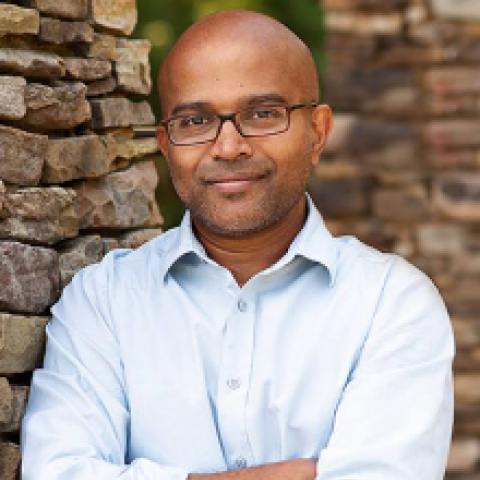Comas Haynes
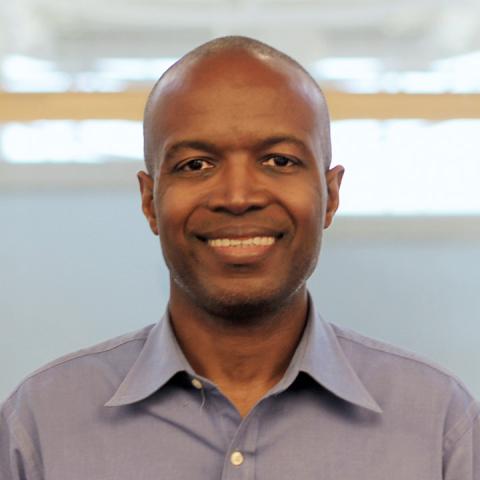

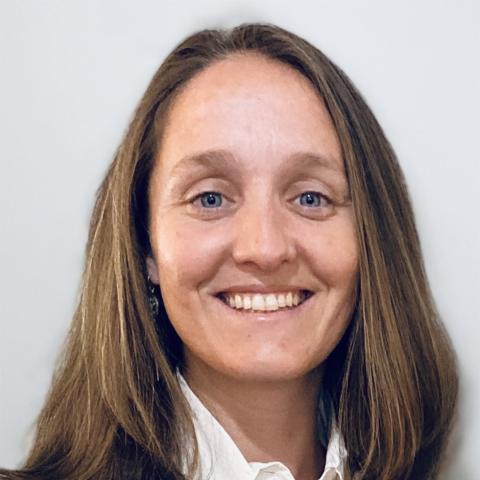
Marta Hatzell is a professor of mechanical engineering at Georgia Institute of Technology. Prior to starting at Georgia Tech in August of 2015, she was a post-doctoral researcher in the Department of Material Science and Engineering at the University of Illinois - Urbana-Champaign. During her post doc, she worked in the Braun Research Group on research at the interface between colloid science and electrochemistry. She completed her Ph.D. at Penn state University in the Logan Research Group. Her Ph.D. explored environmental technology for energy generation and water treatment. During graduate school she was an NSF and PEO Graduate Research Fellow.
Currently her research group focuses on exploring the sustainable catalysis and separations, with applications spanning from solar energy conversion to desalination. She is an active member of the American Chemical Society, the Electrochemical Society, ASEEP, and ASME. Hatzell was awarded the NSF Early CAREER award in 2019 for her work on distributed solar-fertilizers, attended the 2019 US Frontiers of Engineering Symposium through the National Academy of Engineering, and was awarded the 2020 Sloan Research Fellowships in Chemistry.
Catalysis; Energy Storage; Smart Infrastructure; Thermal Systems; Water

Tom Fuller is Professor of Chemical Engineering at the Georgia Tech. Dr. Fuller received a BS from the University of Utah in Chemical Engineering in 1982. Dr. Fuller then served for five years in the U.S. Navy working as a Nuclear Engineer. In 1992 he obtained a Ph.D. from UC, Berkeley also in Chemical Engineering.
Subsequently, Dr. Fuller developed advanced lithium batteries while working as a postdoctoral fellow at Lawrence Berkeley National Laboratory. He then moved to United Technologies. He was responsible for technology development, design, assembly, and test of cell stacks for UTC Fuel Cells.
His research group at Georgia Tech is focused on durability challenges for electrochemical systems. For the last eight years Dr. Fuller has been a Technical Editor for the Journal of the Electrochemical Society. In 2009 Dr. Fuller was named a Fellow of the Electrochemical Society.
Electric Vehicles; Energy Storage; Hydrogen; Modeling; Materials Failure and Reliability; Energy Conversion; Energy Storage; Batteries; fuel cells
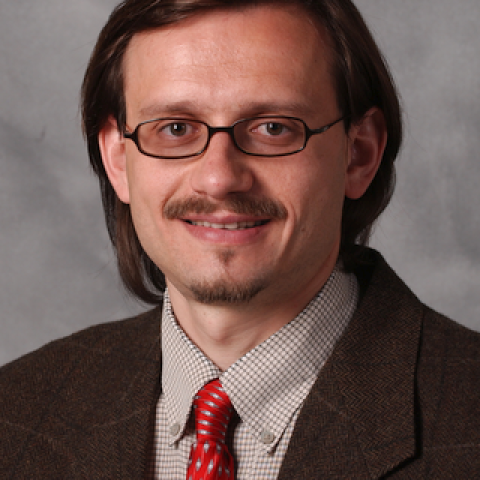
Fedorov's background is in thermal/fluid sciences, chemical reaction engineering as well as in applied mathematics. His laboratory works at the intersection between mechanical and chemical engineering and solid state physics and analytical chemistry with the focus on portable/ distributed power generation with synergetic CO2 capture; thermal management of high power dissipation devices and electronics cooling; special surfaces and nanostructured interfaces for catalysis, heat and moisture management; and development of novel bioanalytical instrumentation and chemical sensors. Fedorov joined Georgia Tech in 2000 as an assistant professor after finishing his postdoctoral work at Purdue University.
Heat Transfer; power generation; CO2 Capture; Catalysis; fuel cells; "Fedorov's research is at the interface of basic sciences and engineering. His research portfolio is diverse, covering the areas of portable/ distributed power generation with synergetic carbon dioxide management, including hydrogen/CO2 separation/capture and energy storage, novel approaches to nanomanufacturing (see Figure), microdevices (MEMS) and instrumentation for biomedical research, and thermal management of high performance electronics. Fedorov's research includes experimental and theoretical components, as he seeks to develop innovative design solutions for the engineering systems whose optimal operation and enhanced functionality require fundamental understanding of thermal/fluid sciences. Applications of Fedorov's research range from fuel reformation and hydrogen generation for fuel cells to cooling of computer chips, from lab-on-a-chip microarrays for high throughput biomedical analysis to mechanosensing and biochemical imaging of biological membranes on nanoscale. The graduate and undergraduate students working with Fedorov's lab have a unique opportunity to develop skills in a number of disciplines in addition to traditional thermal/fluid sciences because of the highly interdisciplinary nature of their thesis research. Most students take courses and perform experimental and theoretical research in chemical engineering and applied physics. Acquired knowledge and skills are essential to starting and developing a successful career in academia as well as in many industries ranging from automotive, petrochemical and manufacturing to electronics to bioanalytical instrumentation and MEMS."

Ben Emerson completed his Ph. D. in Aerospace Engineering from Georgia Tech in August, 2013. Since then, Ben has worked as a Research Engineer at the Ben T. Zinn Combustion Lab at Georgia Tech. Ben’s research portfolio includes projects on combustion instabilities, alternative fuels, and combustion system R&D with a core focus and motivation of cleaner combustion. Ben’s research primarily consists of three core competencies, which are experimental combustion system development, combustor diagnostics, and combustion theory and modeling. Ben’s combustion system development work spans a wide variety of applications, from small lab-scale burners to combustor rigs that test full-scale gas turbine combustor hardware. His combustor diagnostics work encompasses the state of the art optical diagnostic techniques for reacting flow field measurements and imaging, and aims to implement those techniques in both laboratory-scale and large-scale rig tests. Finally, Ben’s combustion theory and modeling work is geared towards analysis of experimental datasets, development of reduced-order engineering tools, and the development of a suite of hydrodynamic stability analysis tools. Together, these core competencies form the pillars of Ben’s research, which facilitates the design of cleaner-burning combustion systems.
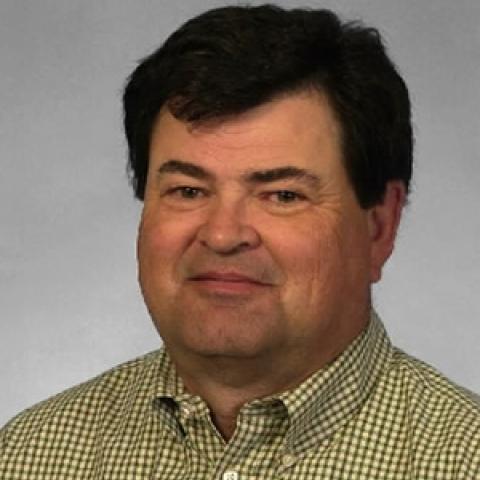
Dr. Chance retired from Global Thermostat at the end of 2022, where he served as a Senior Science Advisor. He continues at the Georgia Institute of Technology where he serves as an Adjunct Professor. Dr. Chance began his career with Honeywell Corporation, holding a number of research positions including Research Manager for Electronic Materials.
In 1986, he joined Exxon as the Director of their Polymers and Fluids Laboratory, later serving as Division Manager for their Paramins Technology division, and as Distinguished Scientific Advisor in ExxonMobil’s Corporate Strategic Research Laboratories. Dr. Chance retired from ExxonMobil in 2006 and joined the Georgia Institute of Technology as a faculty member with a joint appointment in the School of Chemical and Biomolecular Engineering and the School of Chemistry and Biochemistry, continuing also as Distinguished Scientific Advisor Emeritus at ExxonMobil from 2006-2009.
He joined Algenol Biofuels (2009-2019) as Executive Vice President for Engineering. Dr. Chance's scientific interests are focused on CO2 capture and utilization, including Direct Air Capture, as a mitigation strategy for climate change.
Dr. Chance has organized several international scientific meetings and served on numerous university and industrial advisory boards. He has published over 150 peer-reviewed articles, edited two books, and authored over 30 patents. He was elected Fellow in The American Physical Society in 1988 and was the 2018 recipient of the Lawrence B. Evans Award from the American Institute of Chemical Engineers, an institute level award for career achievement.

